Amazon Echo Dot vs Google Home Mini: which is better?
Simple to set up, capable of answering questions, retrieving information, setting alarms, playing music and plenty more besides – the virtual butler has come to life.
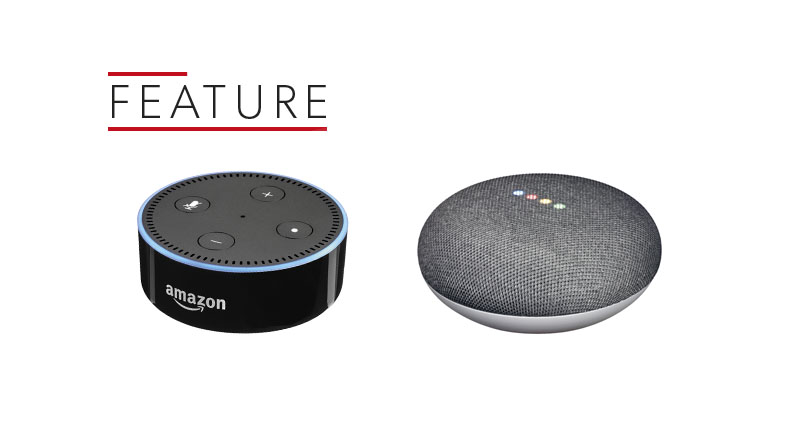
If you want to bring voice control and artificial intelligence into your home, the Amazon Echo Dot and the Google Home Mini, both £50, are the cheapest way to do so.
Connect them to other apps and devices and they become capable of quite complex tasks, from ordering taxis to controlling your TV and turning on your lights. So if you want to make your home smarter, which is your better option?
MORE: Smart speakers - everything you need to know
Build
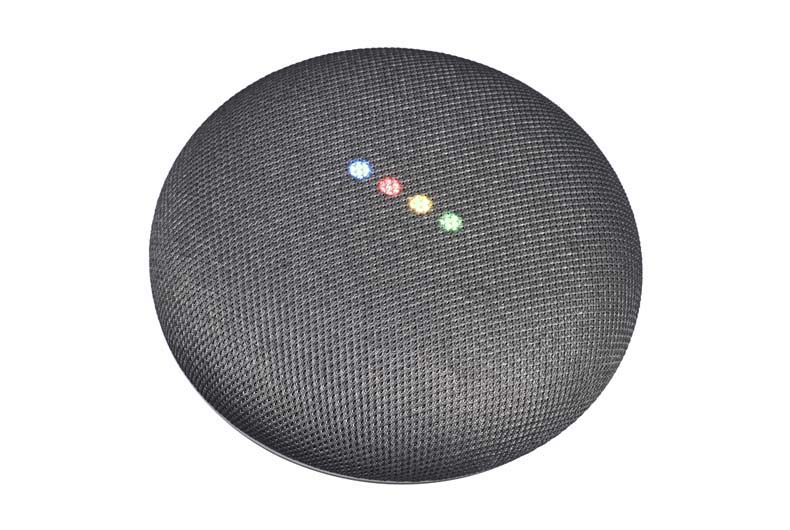
For starters, these two devices really aren’t smart speakers in the true sense.
Yes, they have small speakers inside, necessary so you can hear responses to your requests, but music playback is not their forte. (Both Amazon and Google have slightly more expensive models – the Echo and the Google Home – which perform this function better, not to mention the likes of the Apple HomePod and Sonos One). Think of them simply as voice assistants and entry-points into bigger ecosystems of smart devices.
Both devices are about the size of a hockey puck, the Home Mini’s rounded edges making for a slightly more premium feel, while the Echo Dot is a little more workmanlike in appearance.
MORE: Best wireless speakers 2018
The latest hi-fi, home cinema and tech news, reviews, buying advice and deals, direct to your inbox.
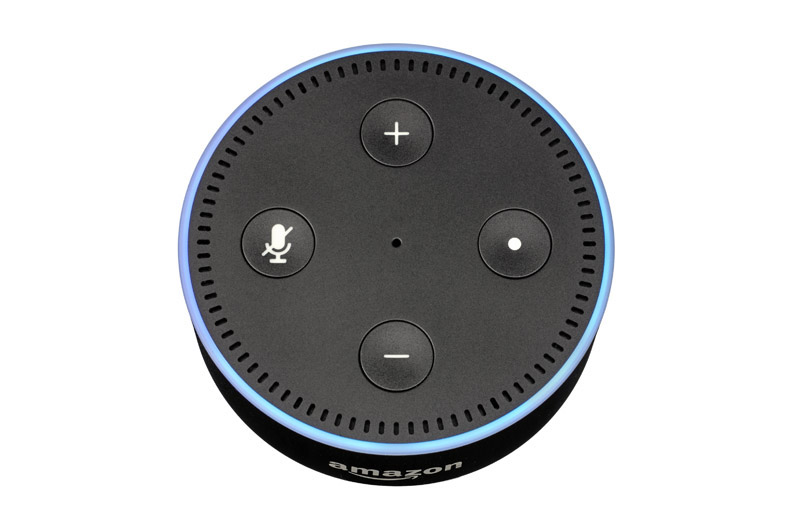
Both can be tucked away on a bookshelf easily enough. These devices are, of course, primarily concerned with voice control - but both also offer the ability to change volume and mute the mic on the unit itself.
The Echo Dot has seven microphones inside to make sure it can hear you in even noisy conditions, while the Mini makes do with two.
One key design difference is the inclusion of an aux connection on the Echo Dot. This allows you to make a wired connection to a separate music system, enabling you to hear responses and music through a decent pair of speakers.
Features
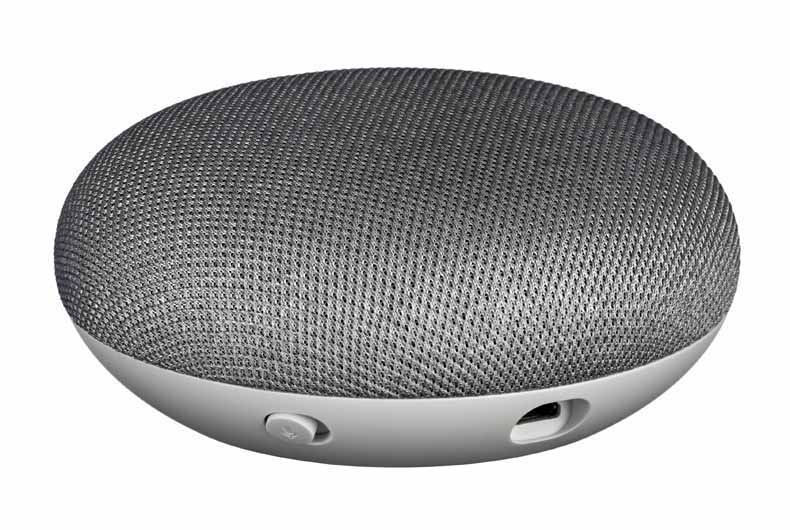
Voice assistants can answer basic queries, such as “Alexa, what’s the weather forecast today?” or “OK Google, what’s the traffic like right now?”.
This sort of request is performed marginally better by Google Assistant – Google knows how to search for info, after all – but the experience is broadly similar in day-to-day use. Both devices should be learning and improving with every passing command, too.
For a bigger chunk of information you can use services built especially for the assistants – Amazon calls them skills, while Google sticks with apps. Add Hive and you can control your thermostat, or link your Uber account and demand a cab to your door.
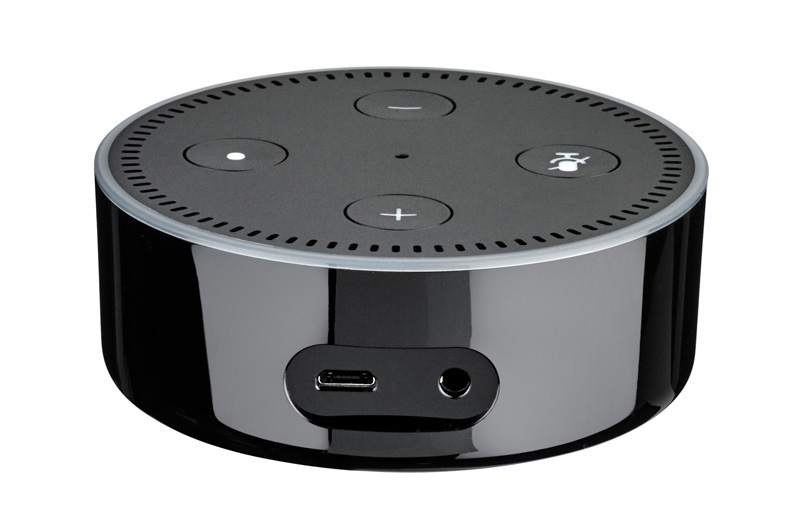
Spotify, the BBC, the Guardian, Netflix and Sky News all offer dedicated apps on both devices. The more apps and/or skills you have, the more you’ll get out of a device such as this, and it’s great business for all involved.
The Echo Dot’s aux output will appeal to those who would rather make use of a bigger and better audio system, while you can also connect either device to other speakers wirelessly.
You can use Bluetooth with the Echo Dot, while the Home Mini can connect to Chromecast devices.
MORE: What is Google Chromecast? Which speakers and TVs are supported?
Multi-room
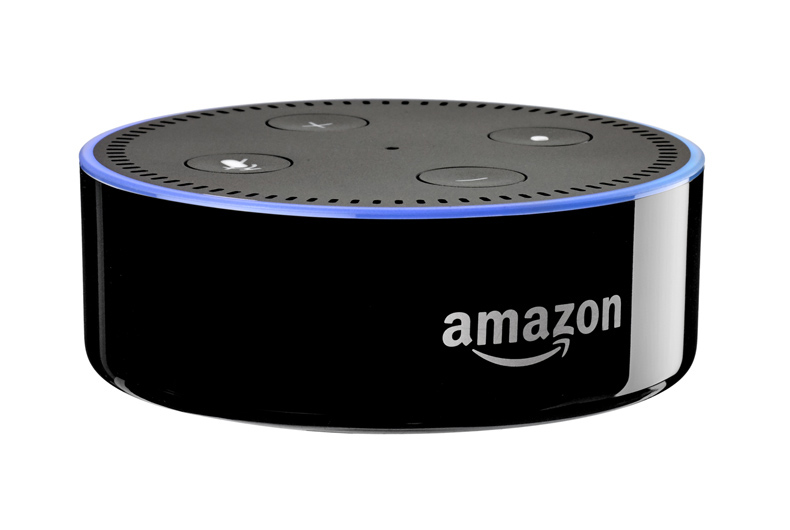
Bluetooth remains the more prevalent wireless connection, making the Echo Dot a little more flexible - but when it comes to multi-room music, Google’s family of devices can do a little bit more.
With the Echo Dot, you can make a multi-room music system using Echo devices. The Dot, Echo, Echo Plus, Echo Show and Echo Spot can all be grouped together in the Alexa app.
You can then command music to that group of devices by simply using the name of the group. You can’t, however, use Bluetooth speakers or connections in a multi-room set-up – so non-Amazon speakers are out of the party.
The basic multi-room system works well enough, though when we place two devices close together we experience a loss of volume across both while the system works out which product is closer to your voice.
And while Amazon Music, Spotify and TuneIn radio will work in multi-room, other skills and music sources won’t.
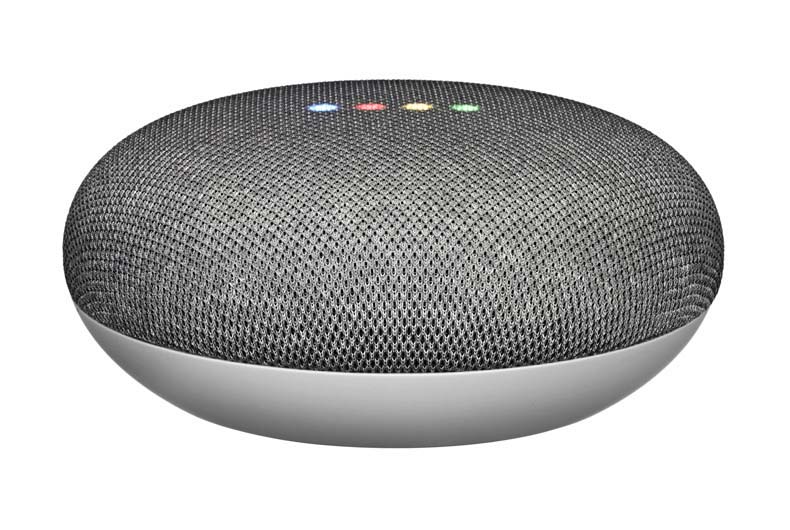
A crucial difference with the Home Mini is that you can create a system not just featuring Google products, but also with Chromecast built-in speakers and other Chromecast Audio devices.
Again, a visit to the app is required to create your group and, once done, sending audio to the group works as it should. Predictably, only Google Music, Spotify and TuneIn radio are supported, though you will get reminders and calendar alerts across all speakers.
So for now, if you’re looking at building a simple multi-room system, and want the flexibility to add different speakers from different brands, Chromecast-supported speakers offer a little more room for manoeuvre.
MORE: How to choose the right wireless speaker
Sound
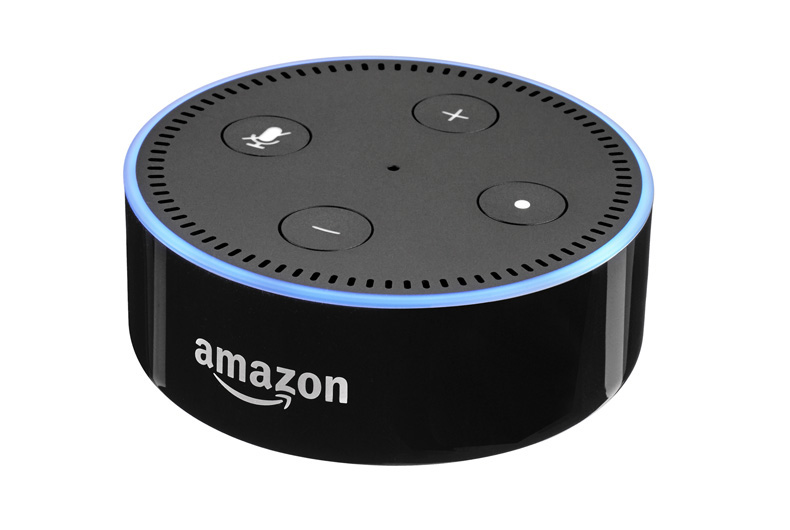
And if you are intending to build a multi-room system, you’ll want to add some other speakers. Neither of these products is good enough for music playback on its own.
In fact, the Echo Dot could do with an upgrade when it comes to dialogue – the Home Mini sounds noticeably better, with a fuller, more rounded delivery. That’s not to say the Echo Dot isn’t sufficient, it just sounds like an overgrown phone speaker.
What is improved on both, and better on the Amazon device, is listening. Those extra mics on the Dot mean it’s much more inclined to hear you, even under difficult conditions.
MORE: Best speaker deals - hi-fi, Bluetooth, wireless

If you have multiple devices, Echo speakers, including this Echo Dot, are adept at working out which one you’re actually talking to.
The Home Mini takes a small step closer towards being conversational, while Alexa on the Echo Dot still seems to need more precise commands to start working at times.
Neither has made the leap to a truly AI device, taking care of actions based on your preferences and routines – that’s the next step for Alexa, Google Assistant, Siri et al.
Verdict
On one hand, these devices are simple. On the other, they are capable of bringing intelligent voice control to a complete smart home. Neither is perfect, but both have bags of potential, while successfully doing the simple tasks expected of a smart assistant today.
The aux connection and Bluetooth on the Echo Dot will appeal to many, but the Home Mini’s Chromecast device support and superior search function mean it may make more sense for some – especially if a full multi-room system built around voice control is the plan.
Ultimately, as the likes of Sonos integrate voice assistants into their products, you might want to go straight to something more substantial. But for now, both these devices offer an affable, affordable step into voice-controlled smart homes.
FOUR STARS
FOR: Cheap and easy to use; good comprehension; lots of compatible devices; 3.5mm output
AGAINST: Low quality speaker; AI could be more advanced
VERDICT: Average sound but an effective entry into the biggest ecosystem of smart devices
FOUR STARS
FOR: Affordable Google Assistant; Chromecast compatibility; fine sound for speech radio
AGAINST: Sound quality is average for music; no aux or Bluetooth output; device support could be better
VERDICT: There’s room for improvement, but this is a good voice assistant - and Chromecast support is a bonus
What Hi-Fi?, founded in 1976, is the world's leading independent guide to buying and owning hi-fi and home entertainment products. Our comprehensive tests help you buy the very best for your money, with our advice sections giving you step-by-step information on how to get even more from your music and movies. Everything is tested by our dedicated team of in-house reviewers in our custom-built test rooms in London, Reading and Bath. Our coveted five-star rating and Awards are recognised all over the world as the ultimate seal of approval, so you can buy with absolute confidence.

